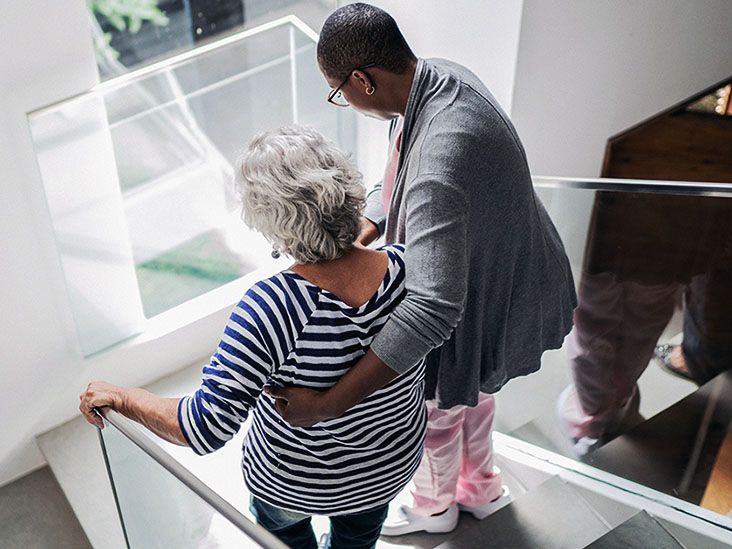Hey there! If you're looking into a bathroom remodel and wondering whether Medicare might help cover the costs, you're definitely not alone. This is one of those questions that pops up all the time, especially for folks who are planning to age in place or who've had a recent health event that's made their current bathroom setup a bit tricky to navigate. Let's dive in and explore what's really possible when it comes to using Medicare for bathroom accessibility upgrades.
What You Need to Know First
Let's keep this real: most of the time, Medicare doesn't just hand out checks for home improvements even important ones like bathroom safety upgrades. I know, that can feel a bit like a buzzkill, especially when we all wish support was just a bit easier to access. But don't stop reading just yet! There are ways Medicare can help it's just a little more nuanced than you might expect.
Here's a story that brings this to life. Picture this: Susan, a 74-year-old living in Texas, had just come home from the hospital after a fall that left her with a broken wrist and bruised confidence. Her doctor helped her draft a medical plan that outlined why she needed specific home modifications including a walk-in shower, grab bars, and a raised toilet seat. Lo and behold, Medicare covered 80% of those specific items, under Part B's Durable Medical Equipment (DME) benefit. So yes, it does happen but only in very specific situations.
How Medicare Covers Bathroom Accessibility Upgrades
Medicare is made up of several parts A, B, C, and D. Parts A and B are the ones most people think of first, and they're the ones we'll focus on here. Part A covers inpatient hospital care, while Part B helps with outpatient services including some in-home medical equipment, provided the need is medically necessary. Part C, or Medicare Advantage plans, are offered by private insurance companies and often include additional benefits. And Part D? That's all about prescription drugs.
When it comes to bathroom remodels, the keywords to keep in mind are "medically necessary" and "safety upgrade." For example, if you've just come out of the hospital and your doctor writes a detailed recommendation saying you need grab bars or a specific kind of shower to safely use the bathroom, Medicare might cover part of it but only if they classify it as DME and not a general renovation.
Durable Medical Equipment is where Medicare really steps in. Think wheelchairs, hospital beds, and sometimes even home modifications that support recovery or prevent injury. In limited cases, this category might include bathroom accessibility upgrades but again, only if they're tied to a clear medical need and properly documented by your healthcare provider. You can learn more about DME coverage on Medicare's official site.
When Medicare Says No
Despite our best efforts, there are times when Medicare looks at a bathroom remodel and says "nah." It's not personal it's just the system working the way it's designed. Here are a few reasons a claim might get denied:
- The upgrade is seen as a general renovation: If you're redesigning the entire bathroom just because you want a new look, Medicare sees that more like a home improvement project.
- Missing or unclear documentation: Without a doctor's note or medical justification, Medicare has no reason to classify a bathroom upgrade as medically necessary.
- No qualifying event: If the need wasn't tied to a recent hospital stay or medical incident, approval becomes a lot more difficult.
Sounds frustrating, right? Trust me, I get it. But here's the thing: sometimes, even if the first try doesn't work, a well-documented appeal or a second opinion from your doctor can change the outcome. So don't throw in the towel too quickly!
What's Actually Covered
Alright, so what kind of home modifications could be approved? Let's take a look at a few items that have a real shot at making it through Medicare's approval process:
| Modification | Covered by Medicare? | Notes |
|---|---|---|
| Grab bars installed by a professional | Potentially, yes | Only if medically necessary |
| Walk-in or roll-in showers | Potentially, yes | With pre-approval |
| Raised toilet seat or commode chair | Yes | If considered DME |
| Full bathroom replacement | No | Seen as a renovation |
| Heated floors or steam features | No | Considered luxury items |
If you want your bathroom to be safe and stylish, that's totally understandable we all deserve comfort and confidence in our homes. But just remember: Medicare looks at function before form. That means while they might not cover the heated flooring or sleek new vanity, they may be happy to cover the grab bars or shower chair that help you stay safe.
What Else Could Help
If Medicare seems like a long shot, don't worry there are other roads worth exploring. Let's take a quick look at a few other programs and funding options that could help:
Medicaid yes, it's a different program from Medicare sometimes offers more flexibility when it comes to home modifications. Some states have something called Home and Community-Based Services (HCBS) waivers that can cover things like ramps, grab bars, or shower modifications for qualifying seniors. Each state is different, so it's worth checking with your local Medicaid office to see what's available in your area.
Another potential resource? Local grants and nonprofits. Believe it or not, organizations like Rebuilding Together or Habitat for Humanity offer financial assistance for seniors and people with disabilities who need accessibility upgrades at home. Some of these programs are income-based, but others are simply focused on helping people stay safe in their own spaces. According to a report by the Kaiser Family Foundation, access to these services varies widely, but they can be incredibly valuable if you qualify.
Before You Start Your Remodel
If you're serious about trying to get any part of your bathroom remodel covered, there are a few smart steps you should take before work begins. Here's how you can give yourself the best shot:
Start by talking to your doctor. It's a small step that can make a huge difference. If you can get a formal letter explaining why the changes are medically necessary for example, to reduce the risk of falls or accommodate mobility issues that document becomes the foundation of your case.
Next, line up contractors who know the rules. Not every renovation pro understands Medicare's ins and outs, but some do and they're worth their weight in gold. These pros know that everything has to be itemized just right, with proper documentation and sometimes even pre-authorization from Medicare itself.
Finally, keep everything. Get receipts, take photos before and after, and keep that doctor's letter in a safe place. If there's ever a question or if you want to appeal a denied claim down the line, having rock-solid records will go a long way.
Separating Fact from Myth
Because this whole topic can feel so confusing, there are plenty of myths floating around and some of them are pretty persistent. Let's clear the air on a few of the most common ones:
- Myth #1: "Medicare covers all home improvements for seniors."
Truth: Not quite! While they'll cover medically necessary DME, general renovation is still off the table. - Myth #2: "I can just buy what I need and get reimbursed later."
Truth: Not usually. Medicare typically pays for approved items up front or not at all. Buying it yourself first can make getting reimbursed really hard. - Myth #3: "There's no point trying nothing ever gets approved."
Truth: That's just not true. It happens and when it does, it can save you thousands. Even if your first request gets denied, don't forget that appeals exist for a reason!
The takeaway? Don't assume nothing is possible just because it's a little tricky. A few well-placed phone calls and carefully laid groundwork can pay off in a big way.
So, Is a Medicare Bathroom Remodel Worth It?
Let's be honest the process isn't always easy, and there are definitely no guarantees. But if it means more comfort, safety, and independence in your own home, that effort can be totally worth it. The benefits of a well-planned, well-supported bathroom upgrade are real:
- You can keep living in the place you know and love.
- Fewer chances of dangerous falls or injuries.
- More confidence in your daily activities.
Of course, like anything, there are also risks. You might have to pay up front out of pocket. The approval process can take time. And, sometimes, despite your best efforts, things don't go the way you hoped. But that doesn't mean it's not worth exploring especially when you've got so many other resources at your fingertips.
Wrapping It Up: Here's What You Can Do Next
Alright, friend if you've made it this far, that tells me you care about staying safe and comfortable in your home. That's something to feel proud of! Whether or not Medicare covers your bathroom remodel, you're making a smart choice by arming yourself with information.
If you want to dig a bit deeper, I'd encourage you to:
- Reach out to your doctor and ask for a letter explaining your specific needs.
- Contact a Medicaid office to learn about HCBS waivers in your state.
- Look into local grants and nonprofits that support seniors and people with disabilities.
And hey if you're still not sure where to begin, drop a comment below or talk to a family member. Chances are good that someone in your corner has navigated this before and could offer support. You're not alone in this, and with the right steps, you can find a path forward.
You're doing great keep going!
Disclaimer: This article is for informational purposes only and does not constitute medical advice. Always consult with a healthcare professional before starting any new treatment regimen.
Related Coverage
Dying and dieing are often confused due to similar spellings. Learn the proper uses of dying, why dieing is incorrect, and tips to remember the right word....
Medicare convalescent care covers up to 100 days in a skilled nursing facility. Know the rules, costs, and how to maximize your benefits....
Learn the importance of cleansing and exfoliating skin. Get tips for choosing the right facial cleansers and exfoliators for your skin type and how to properly exfoliate your face and body....
Compare Michigan Medicare plans and choose the right coverage for your health needs. Get support and save money....
Get Medicare Part D plans for 2025, compare costs, formularies, pharmacy networks, and the new out‑of‑pocket cap to save money....
Knowing the red flags like isolation, mood swings, controlling behavior and fear in toxic relationships can empower you to regain your self-worth and walk away....
Cats can provide companionship, mental stimulation, and comfort for seniors with dementia. Learn how cats benefit dementia patients and tips for integrating a feline companion....
Explore the 10 things your doctor may not tell you about the dying process, shedding light on the scientific, emotional, and spiritual aspects of mortality....
Learn how to choose the best glycemic index (gi) brands of bread, cereal, pasta and more for managing blood sugar if you have diabetes or prediabetes....
Find the right Rhode Island Medicare plan with our simple guide. Compare Original Medicare and Medicare Advantage options....








